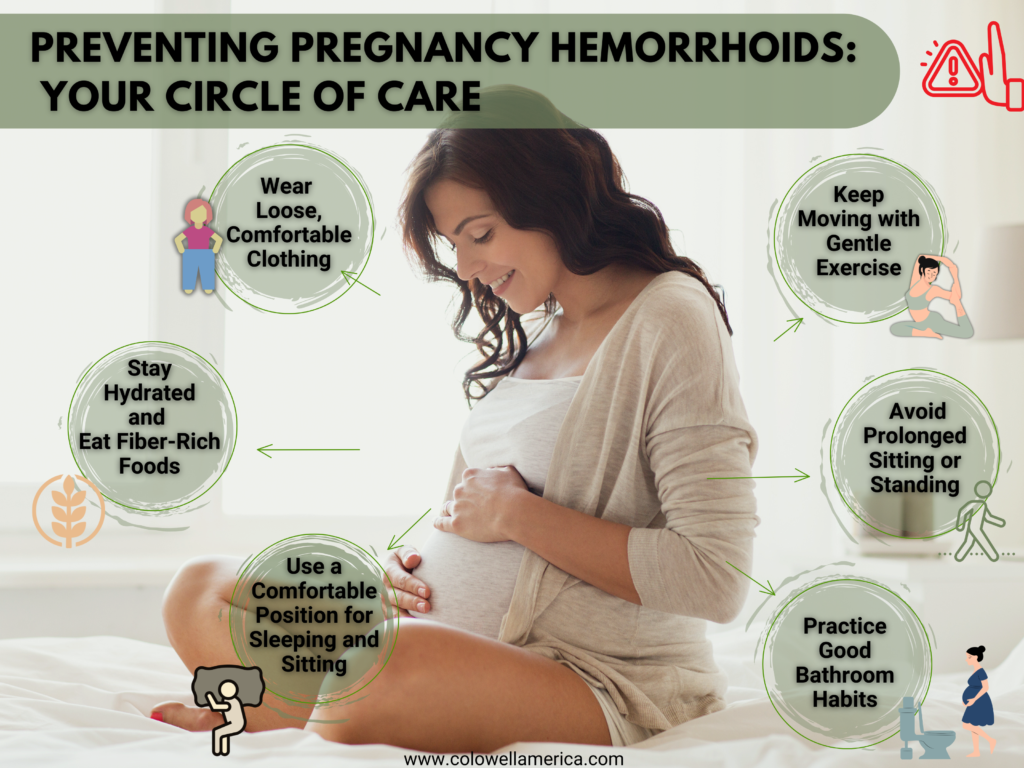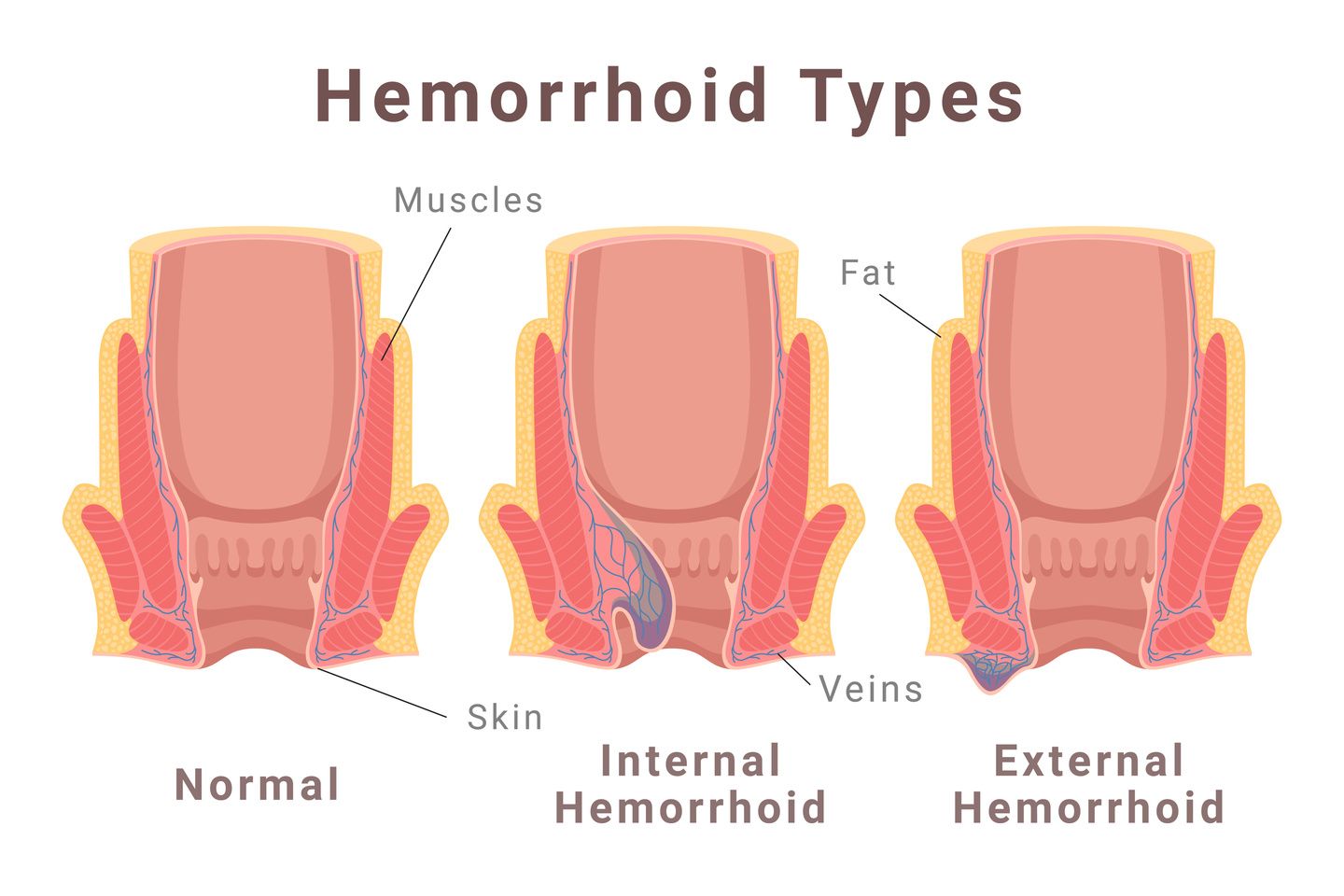Isn’t pregnancy a time of incredible transformation and joy?
But it can also bring unexpected changes that aren’t quite so joyful. One common discomfort experienced by many expectant mothers is hemorrhoids. Although hemorrhoids are common and often harmless, they can be uncomfortable and stressful to deal with, especially during pregnancy.
Here, we’ll dive into everything you need to know about pregnancy hemorrhoids, what they are, why they happen, and how you can treat and prevent them.
Let’s make this journey a little easier to navigate!

What Are Pregnancy Hemorrhoids?
Hemorrhoids, often called “piles,” are swollen or enlarged veins around the anus or lower rectum. They’re very similar to varicose veins, except they occur in a more sensitive area. Pregnant women who have never dealt with hemorrhoids before may suddenly find themselves experiencing them during pregnancy. These hemorrhoids can be either:
- Internal Hemorrhoids: Located inside the rectum, often not visible, but can cause pain, especially during bowel movements.
- External Hemorrhoids: Located around the anus, often visible as small, painful lumps or bumps.

Why Do Pregnancy Hemorrhoids Happen?
If you’re wondering
“Why do hemorrhoids show up during pregnancy?”
You’re not alone! About half of all pregnant women experience hemorrhoids at some point. Here are some reasons why hemorrhoids show up during pregnancy:
Increased Pressure:
As your baby grows, so does your uterus, which puts added pressure on the veins around your pelvis. This extra pressure on the blood vessels around your rectum and anus can lead to swelling and hemorrhoids.
Hormonal Changes:
Pregnancy brings a surge in the hormone Progesterone. While Progesterone is essential for a healthy pregnancy, it can also relax your blood vessels, making them more susceptible to swelling. This hormone can also slow down digestion, which often leads to constipation, a key factor in the development of hemorrhoids.
Constipation:
Constipation is a common issue during pregnancy due to hormonal changes, reduced physical activity, and sometimes even prenatal vitamins, which contain Iron. Straining due to constipation can aggravate or lead to hemorrhoids.
Increased Blood Volume:
During pregnancy, your body produces more blood to support your growing baby. While this is a normal part of pregnancy, it can cause blood vessels to swell and increase your risk of hemorrhoids.
Common Symptoms of Pregnancy Hemorrhoids
Pregnancy hemorrhoids can range from mildly uncomfortable to quite painful. Here are some common symptoms to look out for:
- Bleeding after bowel movement
- Pain or Discomfort
- Itching and Burning
- Swelling or Lumps
Managing and Treating Pregnancy Hemorrhoids
Finding relief from hemorrhoids during pregnancy is essential for comfort. Fortunately, there are several safe, effective options you can try.
Natural Remedies for Hemorrhoid Relief
For many pregnant women, gentle, natural remedies can go a long way in managing hemorrhoid symptoms:
- Take Warm Baths: Soaking in a warm bath, especially with Epsom salts, can help soothe irritation and reduce inflammation.
- Stay Hydrated: Drinking plenty of water can help prevent constipation, making it easier to pass stools without straining.
- Increase Fiber Intake: Fiber-rich foods, like fruits, vegetables, and whole grains, can help soften stools and reduce constipation. Consider talking to your doctor about a fiber supplement if you’re having trouble getting enough through diet alone.
- Use a Cold Compress: Applying a cold pack to the affected area for a few minutes can help reduce swelling and relieve pain.
- Avoid Prolonged Sitting: Sitting for too long, especially on hard surfaces, can aggravate hemorrhoids. Try to alternate between sitting and standing, or use a cushioned seat if possible.
Over-the-Counter and Prescription Treatments
If natural remedies don’t bring enough relief, there are other safe treatment options you can try:
- Witch Hazel Pads: Pads or wipes containing witch hazel can be soothing for external hemorrhoids, offering temporary relief from itching and burning.
- Stool Softeners: Sometimes, a doctor-recommended stool softener can help prevent straining during bowel movements, which in turn can help prevent and manage hemorrhoids.
- Over-the-Counter Hemorrhoid Creams: Certain creams or ointments can reduce inflammation, but it’s essential to consult with your doctor before using them, especially during pregnancy.
Medical Treatments
In cases where hemorrhoids persist after pregnancy or cause significant discomfort, your doctor might recommend a consultation with a colorectal specialist, to discuss additional treatment options. Though more severe treatments are rare during pregnancy, your doctor may suggest options after you’ve delivered if the hemorrhoids haven’t resolved.
:max_bytes(150000):strip_icc()/VWH_Illustration_How-to-Prevent-Pregnancy-Hemorrhoids_Illustrator_Ellen-Lindner_Final-c7b5a976a4ab4cbf88d2757cd858bb55.jpg)
Talking to Your Doctor
If you’re struggling with hemorrhoids or have questions about treatment options, don’t hesitate to reach out to ColoWell America in Tampa, FL. In many cases, hemorrhoids do improve after pregnancy, but it’s always best to seek support from the best hemorrhoids doctor in Tampa, FL if you need it.
Remember!
Pregnancy is full of changes, and while hemorrhoids may not be the most glamorous part, they’re something many moms-to-be go through!
The good news? You don’t have to handle them alone.
Some simple lifestyle tweaks, soothing natural remedies, and support from your healthcare team can make a big difference. So, let’s tackle this together and keep the focus on the exciting parts of your journey!
-Disclaimer-
The information provided on this website is for educational and informational purposes only and is not intended as medical advice. Always consult with a qualified healthcare provider regarding any medical concerns, conditions, or treatment options. Individual results may vary. The information provided or services described are not intended to diagnose, treat, cure, or prevent any disease. Any medical or aesthetic procedure should be discussed thoroughly with a licensed professional before beginning treatment.

